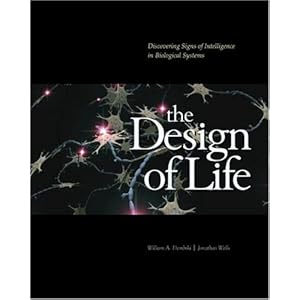 Some wonder. A friend of Uncommon Descent wrote recently to say that
Some wonder. A friend of Uncommon Descent wrote recently to say that
In a lecture (November 2008) at Case Western University, prominent origin of life researcher Robert Hazen, author of Genesis: The Scientific Quest for Life’s Origin, essentially admits that the burden of proof is on those who oppose ID, not those who propose it.
Some attribute such admissions to the dead stall of origin of life research for 150 years – except that popular media perpetually conflate bright ideas with concrete findings.
Here are some quotations from the transcript:
Now we may ask, is intelligent design scientific? On the one hand intelligent design does make testable predictions. This point is often overlooked. It predicts…there is certainly no natural process by which the first cell could have arisen from non-life. And you can test these hypotheses because if in a laboratory experiment we can go and synthesize, if we can make from scratch a bacterial flagellum, or an eye, or a cell, then we’ve disproven a basic tenet of intelligent design……..This leads to the “debate”…It is easy to see how we as scientists appear close minded, we are the ones who are scared to address this controversy, we are the ones who are hesitant to have an open and honest debate and it makes us look bad. What are we to do?
What I do as a scientist is I go into the laboratory and I design a research program…if we can show in the laboratory a series of experiments that goes from geochemical simplicity step by step by step to the complexity approaching a living thing then we have invalidated the claims of intelligent design, we have shown a natural process by which life can arise, and we have therefore solved that problem.
Well, how’s that going?
Another friend butted in to say that Hazen had been sent Design of Life and that it certainly sounds like he’s read Chapter 8, an unsparing assessment of the 150-year origin of life circus:
“Most of origin-of-life research is as relevant to the real problem of life’s origin as rubber-band powered propeller model planes are to the military’s most sophisticated stealth aircraft.” (Ch.8)”The origin of information is not a problem of chemistry. Chemistry can be a carrier of information, but it cannot be its source.” (Ch.8)
“Chemists typically do not concern themselves with the problem of the origin of information because their work presupposes a smart chemist ready to provide it!” (Ch.8)
“The claim that natural laws are sufficient to account for the origin of life is far-fetched. Natural laws work against the origin of life. Natural laws describe material processes that consume the raw materials of life, turning them into tars, melanoids, and other nonbiological substances that thereafter are completely useless to life.” (Ch.8)
Apparently, Hazen’s PowerPoint flashes,
How should science respond to ID?- Design a research program that demonstrates the natural transition from chemical simplicity to emerging complexity.
– If biological complexity can be shown to arise spontaneously as the result of natural processes, then ID is unnecessary.
How to respond? How be the origin of life researchers don’t get back to us until they’ve shown that biological complexity can arise spontaneously as the result of natural processes, and not just postulated it or enforced it as a dogma.
Just think of all the clutter it would save the pop science press. Oh, forget that … in Clutter Central, clutter rules.